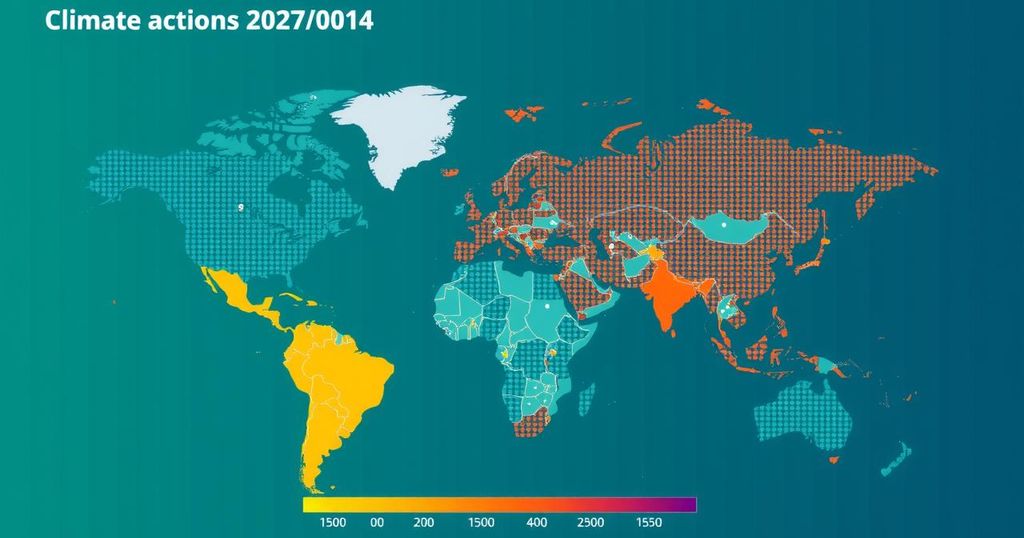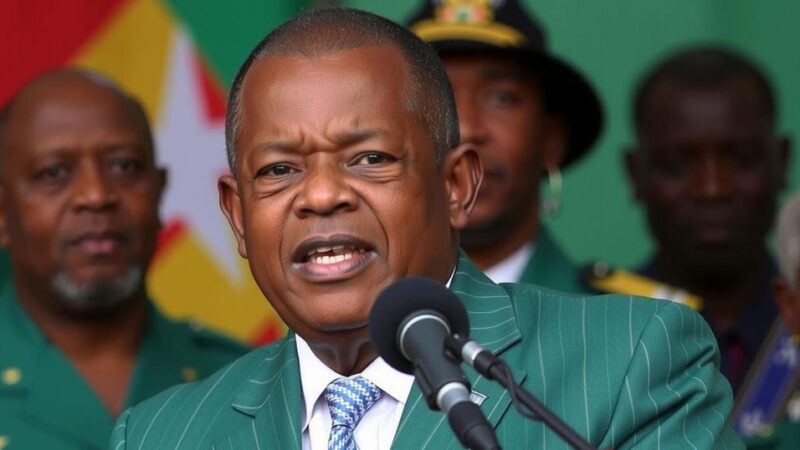A global electoral landscape in 2024 demonstrates a weakening commitment to climate action despite increasing environmental crises. Leaders who undermine climate science have gained traction in various jurisdictions, prompting concerns regarding the prioritization of environmental policies in favor of economic pressures. This troubling trend may hinder future progress as the urgency of climate challenges escalates.
The year 2024 has begun with a notable trend: many nations, despite experiencing severe climate crises, are witnessing a significant reduction in commitment to address climate change. With elections marking what the United Nations describes as the “biggest election year in human history,” leaders who deny or downplay climate issues have seen electoral success. This situation is further complicated by the rise of populism and the distractions posed by global conflicts and economic challenges.
In advanced economies, the influence of climate action appears to be waning, even as the frequency and severity of climate-related disasters escalate. Catherine Fieschi, an expert on European politics, indicated that climate concerns, previously at the forefront of political discourse, have once again been relegated beneath immediate economic issues such as inflation and energy prices. The political landscape is evolving, where climate action is often perceived as a liability rather than a necessity.
Despite evidence of a rapidly warming planet, including extreme weather conditions affecting countries worldwide, climate issues remain secondary in many election campaigns. In India, however, climate-related protests inadvertently played a significant role in shaping the political narrative, aiding Prime Minister Narendra Modi’s recent electoral victory.
Contrarily, right-leaning political groups across Europe have thrived in elections by framing climate initiatives as economically burdensome. In the United States, President-elect Donald Trump has publicly vowed to roll back environmental regulations and dismiss renewable energy policies, leading to a challenging climate outlook for the coming years.
Though some regions have shown resilience, such as the UK labor party’s success emphasizing clean energy, the overall trajectory indicates a potential stagnation in global climate initiatives. Political scientists caution that this shift towards populism could lead mainstream parties to compromise on essential climate policies, further endangering progress. Recent climate summits have failed to produce impactful resolutions, marred by a lack of participation from key world leaders, signaling a diminished global commitment.
The ongoing climate crisis has reached a critical juncture, highlighted by record temperatures, increased frequency of natural disasters, and changing electoral dynamics. As global elections unfold in 2024, the responses to climate issues are particularly crucial, with a substantial political narrative forming around populist sentiments and immediate economic concerns overshadowing environmental priorities. This environment complicates efforts to unite behind significant climate action, further exacerbated by the actions and rhetoric of political leaders worldwide who may prioritize short-term gains over long-term sustainability.
In summary, the evolving political climate during this pivotal election year reveals a worrying trend in the diminishing prioritization of climate action on the global stage. Although some regions have experienced victories for climate-friendly policies, the overall narrative suggests that economic anxieties and populist agendas are overtaking urgent environmental concerns. As climate crises worsen across nations, the reluctance to prioritize robust climate policies could jeopardize future sustainability efforts and heighten the risks associated with climate change.
Original Source: www.theguardian.com







